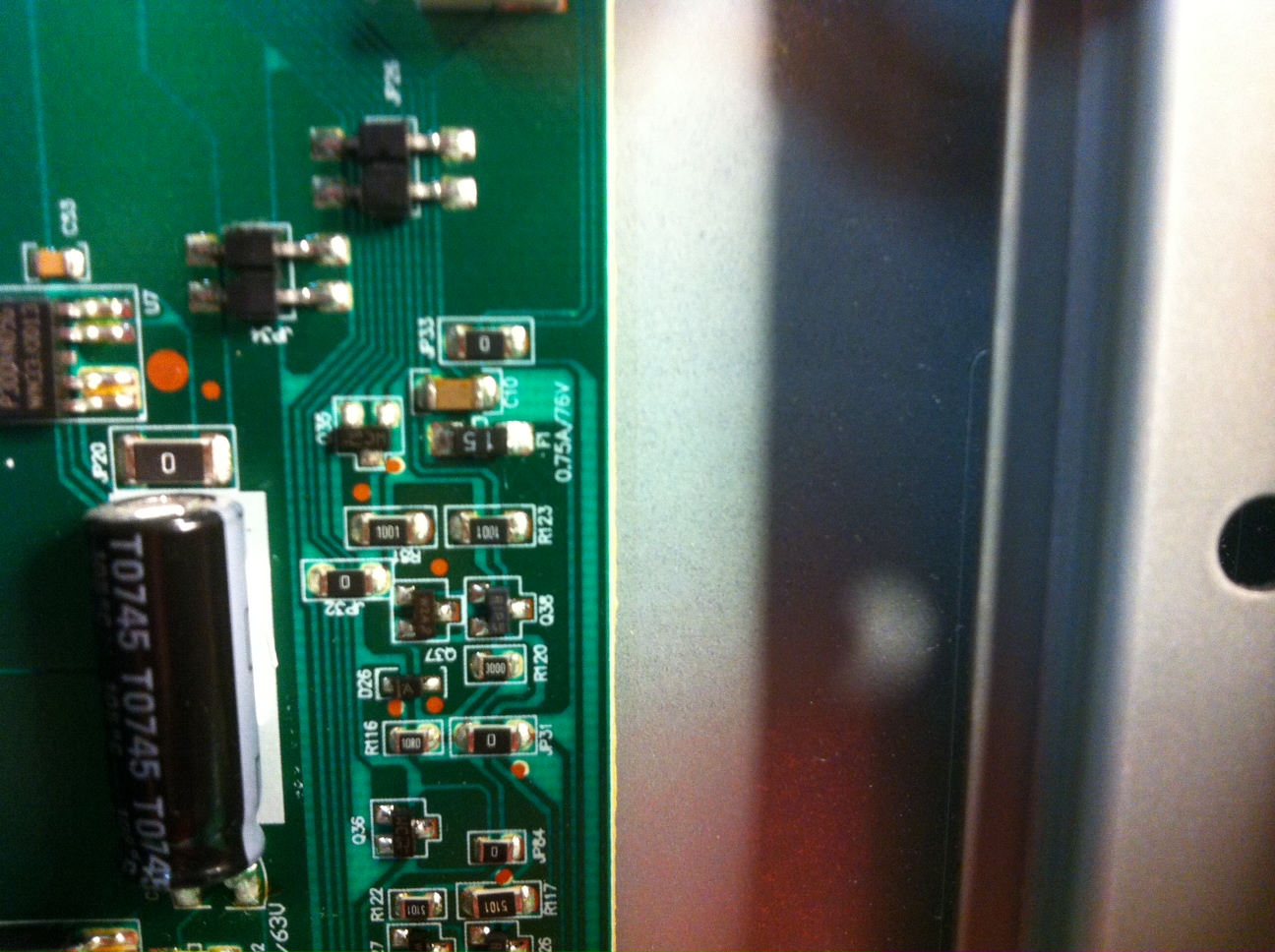Hello to all! New user here, but a long time lurker that's come here several times seeking knowledge from the many skilled members. I'm hoping that someone can help me finish a repair job that I doubt I could have done without the past help of several members here.
As noted, I'm working on a LG model 42LG50-UG LED tv, and I have determined, and proven, AND temporarily scabbed in a round fuse (with successful results) to address what seems to be the commonly blowing fuse described in this thread: https://www.badcaps.net/forum/showthread.php?t=10439
This is the fuse that users rb0746 (post #1 and more), Solipsist (post #87 and more), and other users have encountered and seems to be a common problem with this make/model of tv. A pic of the exact fuse is shown in post #83 and is shown for convenience here (has #15 on it, is black in color, and has .75A/76W on the board next to it):

***Note: my fuse id is identical, same location and all but is stamped .75A/63V on the board.
So now that the problem component is identified, I'm not sure exactly what replacement to buy. Yes, it's 750mA 63V SMT fuse, but is it slow blow, fast blow or super fast blow? And what's with the "melting I^^2t" in the digikey specs, what do I need to know about this and how do I apply the info? As for the mounting of the replacement, I'm really experienced with soldering but given how small this part is IF I were to use another surface mount fuse from digikey (or other?) I'm concerned that even with my 25W pencil iron and awesome, lead saturated, quick flowing and not RoHS compliant solder, that I might degrade/destroy the new fuse. As such and in the name of reliability, I'm considering a fuse with axial leads that will stand above the circuit board a bit and with I can grasp with a needle nose pliers during install, thus protecting it from heat. Something that looks like this: http://www.digikey.com/us/en/ph/Litt...316Series.html Two people so far seem to endorse the idea of an axial lead replacement, first is user budm (post #101, and with very good results) and a buddy of mine who is a EE.
So after seeing this, how do I pick the correct replacement fuse and are there any brands that I should avoid? I don't wanna just go for it, slap a fuse in, call it a day and have it pop in a few years while watching a movie, I want a reliable, durable and robust repair, one that isn't gonna fail.
As noted, I'm working on a LG model 42LG50-UG LED tv, and I have determined, and proven, AND temporarily scabbed in a round fuse (with successful results) to address what seems to be the commonly blowing fuse described in this thread: https://www.badcaps.net/forum/showthread.php?t=10439
This is the fuse that users rb0746 (post #1 and more), Solipsist (post #87 and more), and other users have encountered and seems to be a common problem with this make/model of tv. A pic of the exact fuse is shown in post #83 and is shown for convenience here (has #15 on it, is black in color, and has .75A/76W on the board next to it):
***Note: my fuse id is identical, same location and all but is stamped .75A/63V on the board.
So now that the problem component is identified, I'm not sure exactly what replacement to buy. Yes, it's 750mA 63V SMT fuse, but is it slow blow, fast blow or super fast blow? And what's with the "melting I^^2t" in the digikey specs, what do I need to know about this and how do I apply the info? As for the mounting of the replacement, I'm really experienced with soldering but given how small this part is IF I were to use another surface mount fuse from digikey (or other?) I'm concerned that even with my 25W pencil iron and awesome, lead saturated, quick flowing and not RoHS compliant solder, that I might degrade/destroy the new fuse. As such and in the name of reliability, I'm considering a fuse with axial leads that will stand above the circuit board a bit and with I can grasp with a needle nose pliers during install, thus protecting it from heat. Something that looks like this: http://www.digikey.com/us/en/ph/Litt...316Series.html Two people so far seem to endorse the idea of an axial lead replacement, first is user budm (post #101, and with very good results) and a buddy of mine who is a EE.
So after seeing this, how do I pick the correct replacement fuse and are there any brands that I should avoid? I don't wanna just go for it, slap a fuse in, call it a day and have it pop in a few years while watching a movie, I want a reliable, durable and robust repair, one that isn't gonna fail.
Comment